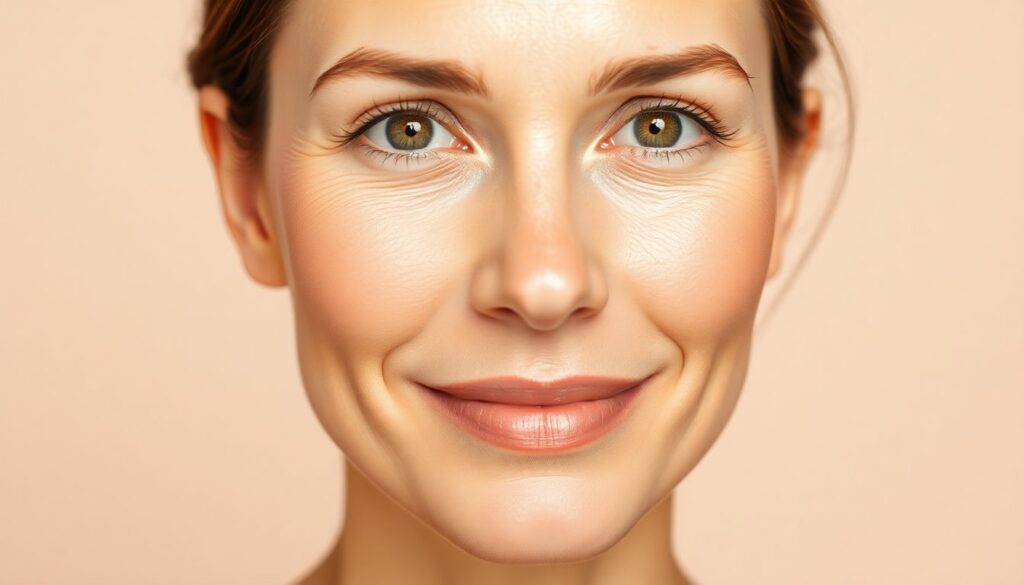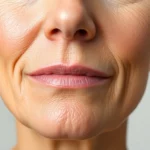Ever looked in the mirror and thought to yourself, “How did I get those lines? All of that can be frustrating — fine lines, dullness. You need a skin refresh. Fortunately, a good toner can assist.
They used to be about balancing your skin’s pH. Times have changed. Now, they do so much more! Today, toners target aging issues.
The appropriate toner can do miracles. It revitalizes skin. It helps reduce wrinkles. A great one brings back your skin’s glow. Scout for anti-aging ingredients. They’re great for older skin, too.
The Science of Aging Skin and How to Care for It
Falling into degradation, that’s the natural part of getting old. But do you know the root cause of it? So let’s look at what’s going on inside your skin as you age.
A Brief Summary of Skin Aging in Cells

The breakdown of collagen and elastin occurs with age. That leads to wrinkles. Your skin cells take longer to regenerate, and moisture diminishes. Sun damage compounds the problem, too. Both contribute to aging skin.
Genetics are involved in aging. Lifestyle impacts it, too. Pollution and other environmental factors are also a problem. These things speed up aging.
Key Ingredients that Over Time Our Skin Needs
Yet some ingredients are beneficial for aging skin. Hyaluronic acid is one. Peptides are another important factor. Don’t forget antioxidants! There also are retinol and glycolic acid options.
Hyaluronic acid is a skin care ingredient that helps attract moisture. Collagen production is assisted by peptides. Antioxidants fight damage. Retinol and glycolic acid are exfoliating agents.
How to Customize to Your Skin Concerns
Everyone’s skin is unique. Soo, you need to customize toner. One person’s approach may not be right for you. Think about your skin type.

Do you have dry skin? Or, is it oily? Maybe it’s a combination. Sensitive skin requires special treatment. Dryness can exaggerate the appearance of wrinkles.
Best Anti-Aging Toner Ingredients
It’s the ingredients in some toners that truly battle signs of aging. Look for these when shopping. They will give you a boost.
Hyaluronic Acid: The Hydration Hero
Hyaluronic acid is a moisture magnet. It draws moisture under your skin. This plumps it up. Fine lines seem to disappear.
Multiple types of hyaluronic acid are available. They have distinct molecular weights. Some reach deeper than others. All three do contributing to hydrating your skin.
How Peptides Act as Collagen Building Blocks
These tell your skin to produce more collagen. Collagen keeps skin firm. It also keeps it elastic. Peptides improve firmness.
Copper peptides are popular. Matrixyl is another type. They provoke collagen in various manners.
Antioxidants: Guardians of the Body from Environmental Assault

Antioxidants combat free radicals. Skin cells are damaged by free radicals. This leads to aging. Free radicals are neutralized by antioxidants.
One of the best antioxidants is vitamin C. Vitamin E is another one. Ara: Green tea extract works, too. Resveratrol helps, too.
What toner should I use based on my skin type?
Therefore, selecting the appropriate toner is very important. Things that work for oily skin do not work for dry skin. First of all, think about your skin type.
For Dry and Mature Skin
Dry skin needs hydration. What a good hyaluronic acid toners are. So does glycerin, and ceramides. These ingredients seal in moisture.
Avoid alcohol-based toners. They can dry your skin out even more. Instead, search for hydrating ingredients.
For Oily and Combination Skin
If you have oily skin stick to exfoliating acid toners. Glycolic acid is effective. Another alternative is lactic acid. Alcohol-free witch hazel works, too.
Avoid overly drying toners. More oil production can be caused by them. Look for a balance instead.
For Sensitive Skin
Sensitive skin needs mild toners. Choose brands that are fragrance-free. Hypoallergenic is a smart choice. Aloe vera calms skin. Centella asiatica and chamomile calm, as well.
Always patch test first. Dab a small amount onto a patch. Wait 24 hours to see whether you react.
How to Add Toner to Your Anti-Aging Routine
How you use toner matters. Use it in your skin care routine the right way. This maximizes its benefits.
A Comprehensive Guide to Apply
Apply toner, after cleansing the face. Use it under serums and moisturizers. This makes them more able to absorb.
You can use a cotton pad. Or, apply it with your hands. Both ways work fine. Just be gentle.
How Often You Should Use It: Figuring Out Balance
Apply toner once or twice a day. It depends on your skin type. It also varies based on the strength of the toner.
Don’t over-exfoliate. This can irritate your skin. Go slow, and see how your skin responds.
Using Toner in Combination With Other Anti-Agers
Use toner thoughtfully with other products. Retinol serum pairs well with a hyaluronic acid toner. Sunscreen goes well with an antioxidant toner.
Do Not Mix Certain Ingredients “AHAs/BHAs and retinol just don’t mesh. They can cause irritation.
Debunking Common Toner Myths
Many myths surround toners. Let’s address some of that confusion. Knowing the truth helps.
2 Myth: Toners Kick Only for Oily Skin

So modern toners actually work for all skin types. The formula works well for dry and sensitive skin, too. Look for hydrating formulas.
MYTH: Toners Are An Unnecessary Step In Your Skincare Routine
Toners do so much more than balance pH. They hydrate skin. They exfoliate it. Toners protect, too, with antioxidants.
Toner Myth: All Toners Have Alcohol in Them
Alcohol-free toners exist. They are well suited for dry and sensitive skin. Read the ingredient list every time.
Conclusion
Toner: Good for Aging Skin It helps hydrate and protect. It also primes the skin for other products.
That said, make sure to use a toner that matches your battle station. Consider your skin type. Answer your individualized questions.
Add toner to your regimen. Achieve a youthful glow. See a skin-care professional for guidance. They can give you the perfect toner.













